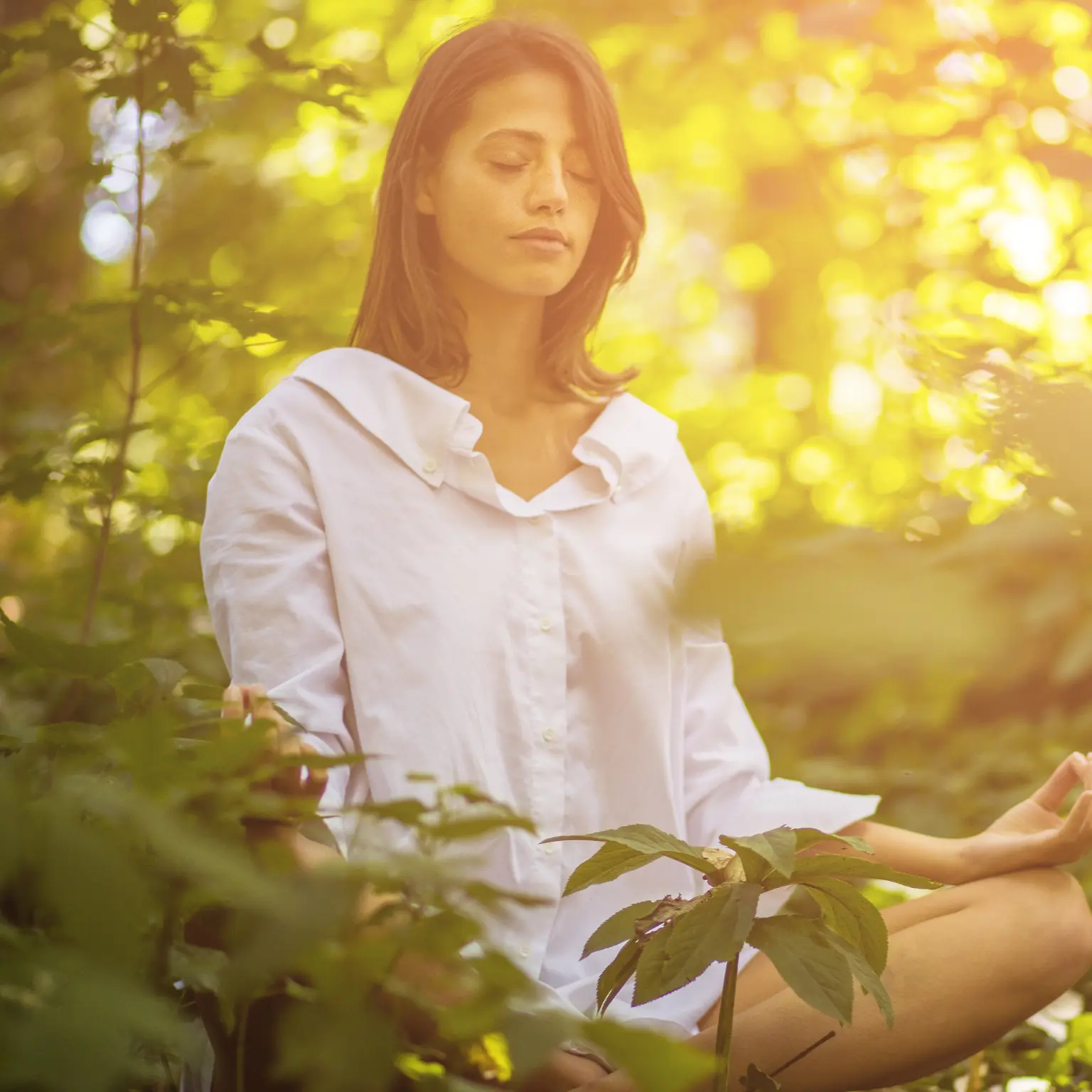6 Simple Tips for Better Sleep and Relaxation

Welcome to Healthy Stride Wellness! We’re thrilled to share this insightful guide on improving your sleep and relaxation. Quality sleep is essential for maintaining physical and mental health, yet many people struggle to achieve it in today’s fast-paced world.
This blog offers six simple tips for better sleep and relaxation, designed to help you unwind, rejuvenate, and enhance your overall well-being. Whether you’re looking to reduce stress, calm your mind, or get a better night’s sleep, these tips guide you.
Table of Contents
Key Takeaways
- Integrating relaxation techniques into your routine can significantly enhance your sleep quality.
- Understanding the relationship between mental health and sleep is crucial for achieving better rest.
- Simple lifestyle adjustments, such as practicing good sleep hygiene, can lead to natural and sustainable improvements in sleep.
Prioritize Sleep Hygiene for Better Sleep and Relaxation
Sleep hygiene involves creating habits and an environment that promotes consistent, quality sleep. It’s the foundation for better sleep and relaxation. By focusing on sleep hygiene, you can make significant strides in improving your sleep patterns and overall well-being. Here’s how you can start:
| Establish a Regular Sleep Schedule: | Consistency is key. Maintaining a consistent sleep schedule by going to bed and waking up at the same time every day, including weekends, can help keep your body’s internal clock in check. This regularity can make it easier to fall asleep and wake up feeling refreshed, ultimately improving sleep quality. |
| Create a Restful Environment: | Your bedroom should be a sleep sanctuary. Keep it cool, dark, and quiet to promote better sleep. To reduce disturbances, you may want to try using blackout curtains, white noise machines, or earplugs. Additionally, investing in a comfortable mattress and pillows can significantly improve your ability to relax and sleep soundly. |
| Limit Screen Time Before Bed: | The blue light from your phones, tablets, and computers can mess with your body’s sleep routine by reducing melatonin production. To help your brain wind down, aim to turn off screens at least an hour before bedtime. |
These practices not only enhance your sleep hygiene but also contribute to better mental health by reducing anxiety and stress, leading to better sleep and relaxation.
Explore Relaxation Techniques to Improve Sleep Quality
Relaxation techniques are powerful tools for achieving better sleep and relaxation. They help calm the mind and prepare the body for rest, making it easier to drift off and enjoy a restful night’s sleep. Here are some effective relaxation techniques:
| Practice Deep Breathing: | Taking deep breaths can greatly lower stress levels and help you relax. A simple technique involves inhaling deeply through your nose, holding your breath for a few seconds, and then exhaling slowly through your mouth. This process helps slow your heart rate and relax your muscles, preparing your body for sleep. |
| Engage in Progressive Muscle Relaxation: | This technique involves systematically tensing and then slowly releasing each muscle group in your body, starting from your toes and working your way up to your head. Progressive muscle relaxation is a highly effective relaxation exercise that can help you unwind and ease into sleep by reducing physical tension. |
| Try Mindfulness Meditation: | Mindfulness for relaxation involves focusing on the present moment without judgment. Before bed, sit quietly and focus on your breathing. Let go of any thoughts that arise, bringing your attention back to your breath. This practice can help clear your mind of worries and distractions, making it easier to fall asleep. |
These relaxation techniques not only improve sleep quality but also have a positive impact on mental health, making them essential for achieving better sleep and relaxation.
The Mental Health and Sleep Connection: Why It Matters?
Understanding the connection between mental health and sleep is crucial for achieving better sleep and relaxation. Poor sleep can exacerbate mental health issues like anxiety and depression, while mental health struggles can make it more difficult to get restful sleep. Here’s why this connection matters:
| The Impact of Stress on Sleep: | Stress is one of the most common causes of sleep disturbances. High levels of stress can lead to difficulties falling and staying asleep, which in turn can worsen mental health conditions. Learning how to reduce stress for better sleep is vital for those who find themselves tossing and turning at night. Techniques such as deep breathing, journaling, or even talking to a friend before bed can help ease your mind and reduce stress levels. |
| Sleep and Emotional Regulation: | Lack of sleep impairs your ability to regulate emotions, leading to increased irritability, mood swings, and difficulty coping with stress. Over time, this can contribute to the development of mental health disorders. By prioritizing sleep, you can better manage your emotions and reduce the risk of mental health issues, improving your overall well-being. |
| The Role of Professional Help: | For individuals struggling with severe sleep disturbances linked to mental health, seeking professional help is crucial. Cognitive-behavioral therapy for insomnia (CBT-I) is a widely recommended approach that addresses the thoughts and behaviors interfering with sleep. This therapy can help you break the cycle of poor sleep and mental health issues, leading to long-term improvements in both areas. |
Recognizing and addressing the mental health and sleep connection is key to achieving better sleep and relaxation, ultimately enhancing your quality of life.
Incorporate Natural Remedies for Sleep into Your Routine
Natural remedies for sleep are a great way to promote relaxation and improve sleep quality without relying on medications. These remedies can be easily integrated into your nightly routine and may help you fall asleep faster and stay asleep longer.
| Herbal Teas: | Drinking a cup of herbal tea before bed is a time-honored tradition for promoting relaxation and better sleep. Chamomile and lavender teas are particularly effective, as they contain compounds that have calming and sleep-inducing properties. Enjoying a warm cup of tea before bed can help signal to your body that it’s time to wind down. |
| Essential Oils: | Aromatherapy with essential oils like lavender, valerian root, or sandalwood can create a calming environment conducive to sleep. You can add a few drops of these oils to your pillow, use them in a diffuser, or mix them with a carrier oil for a relaxing massage before bed. The soothing scents help relax your mind and body, preparing you for a restful night’s sleep. |
| Melatonin Supplements: | Melatonin is a hormone that helps control when you feel sleepy and when you wake up. For those who struggle with falling asleep, taking a melatonin supplement about 30 minutes before bed can help regulate your sleep patterns. However, it’s important to use this supplement under the guidance of a healthcare professional to ensure it’s appropriate for you. |
Incorporating these natural remedies into your routine can enhance your ability to relax before bed and improve your overall sleep quality, contributing to better mental health and well-being.
Easy Techniques to Relax Your Mind Before Going to Sleep
Calming your mind before bed is essential for achieving deep, restful sleep. With so many daily distractions, it’s easy for your mind to race when you should be winding down. Here are some simple ways to calm your mind and prepare for sleep:
| Read a Book: | Reading a few pages of a book before bed can help distract your mind from daily stressors and create a relaxing bedtime ritual. Choose a book that is calming and not overly stimulating to avoid getting too engrossed in the story. This practice not only helps you relax but also signals to your brain that it’s time to sleep. |
| Listen to Soothing Music: | Soft, calming music or white noise can create a serene atmosphere that encourages sleep. Whether you prefer classical music, nature sounds, or ambient noise, the key is to choose something that relaxes you and helps quiet your mind. To ensure you sleep well, it’s best to keep the noise down. |
| Write in a Journal: | Journaling before bed is an excellent way to process your thoughts and feelings, reducing the mental clutter that can keep you awake. By writing down your worries, to-do lists, or reflections on the day, you can clear your mind and reduce anxiety, making it easier to fall asleep. |
These strategies not only help you calm your mind before bed but also contribute to developing healthy sleep habits, improving your sleep quality, and supporting your mental health.
Best Practices for Sleep and Relaxation
Incorporating best practices for sleep and relaxation into your daily routine can lead to long-term improvements in your sleep quality and overall mental health. These practices are simple, yet effective, and can be easily adopted into your lifestyle:
| Stay Active During the Day: | Engaging in regular physical activity is a great way to enhance the quality of your sleep. Exercise helps regulate your sleep-wake cycle, making it easier to fall asleep and enjoy deep, restorative sleep. Aim to engage in at least 30 minutes of moderate exercise most days of the week, but try to avoid vigorous workouts close to bedtime, as they may energize When you spend too much time on your phone before bed, it can disrupt your sleep and make it difficult for you to fall asleep. |
| Watch Your Diet: | What you eat and drink before bed can significantly impact your sleep. Avoid heavy meals, caffeine, and alcohol in the hours leading up to bedtime, as they can disrupt your sleep. Instead, opt for light snacks that promote sleep, such as a small bowl of yogurt, a banana, or a handful of almonds. These foods contain nutrients like tryptophan, magnesium, and potassium, which can help you relax and sleep better. |
| Maintain a Consistent Routine: | Consistency is key when it comes to sleep. By maintaining a regular bedtime routine, you can train your body to expect sleep at the same time each night. This routine might include activities like taking a warm bath, reading, or practicing relaxation techniques. The goal is to create a series of calming actions that signal to your body that it’s time to wind down and prepare for sleep. |
Adopting these best practices for sleep and relaxation will not only improve your sleep quality but also contribute to better mental and physical health, helping you lead a more balanced and fulfilling life.
In Summary
Thank you for reading this guide brought to you by Healthy Stride Wellness. By incorporating these six simple tips for better sleep and relaxation into your daily routine, you can significantly improve both your sleep quality and mental health. Remember, sleep is a vital component of overall wellness, and taking steps to enhance it can lead to a healthier, happier life.
Follow Healthy Stride Wellness for more insights and tips on how you can continue to improve your mental health and wellness, achieve better sleep and relaxation, and find the balance you deserve.
FAQs
How can I naturally improve my sleep?
Improving your sleep naturally involves adopting good sleep hygiene practices, incorporating relaxation techniques into your routine, and trying natural remedies like herbal teas or melatonin supplements.
What are some tips for better sleep?
Effective tips for better sleep include establishing a regular sleep schedule, creating a restful environment, and limiting screen time before bed to promote relaxation and improve sleep quality.
How do you relax before going to bed?
Relaxing before bed can be achieved through deep breathing exercises, progressive muscle relaxation, mindfulness meditation, and creating a calming bedtime routine that includes activities like reading or listening to soothing music.
Please Note: Healthy Stride Wellness provides educational content and is not a replacement for medical advice. Consult a healthcare provider for any health issues.




